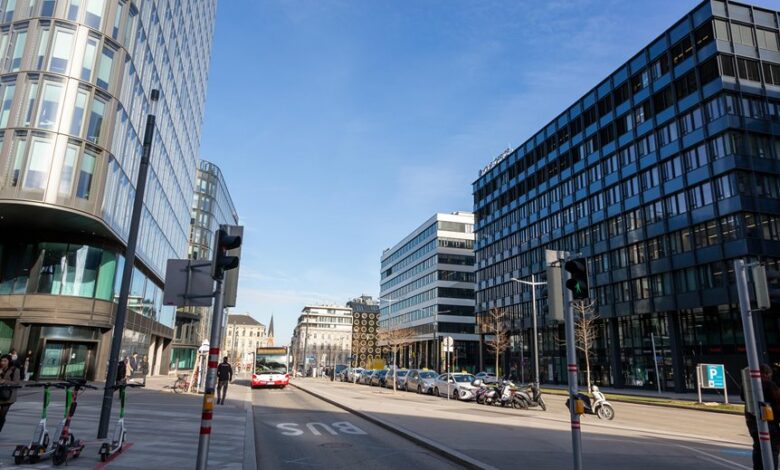
Smart cities represent a transformative approach to urban living, integrating technology to enhance sustainability. By utilizing IoT systems and advanced data analytics, cities can optimize resource management and reduce waste. These innovations also promote cleaner transportation and improved mobility. Yet, the success of these initiatives hinges on community engagement, ensuring that technological advancements meet the actual needs of residents. As cities evolve, the question remains: how can these technologies be effectively implemented to foster truly sustainable environments?
The Rise of Smart Cities: An Overview
As urban populations continue to swell, cities worldwide are increasingly adopting smart technologies to enhance efficiency and sustainability.
This shift in urban planning relies heavily on robust digital infrastructure, enabling real-time data collection and analysis.
The integration of these technologies not only optimizes resource management but also empowers residents, fostering a sense of autonomy and freedom in navigating their urban environments.
Key Technologies Driving Smart Urban Solutions
Key technologies such as the Internet of Things (IoT), data analytics, artificial intelligence (AI), and sustainable energy solutions are fundamentally reshaping urban landscapes.
These innovations enable cities to operate more efficiently, enhance quality of life, and reduce environmental impact.
Internet of Things (IoT)
The Internet of Things (IoT) serves as a pivotal framework for the development of smart cities, enabling the seamless integration of digital technology with urban infrastructure.
This integration brings forth opportunities and challenges, particularly in IoT security.
Key aspects of IoT in urban settings include:
- Smart sensor integration
- Real-time data collection
- Enhanced energy efficiency
- Improved public safety
- Sustainable resource management
Data Analytics and AI
While urban environments become increasingly complex, data analytics and artificial intelligence (AI) emerge as essential technologies that drive innovative solutions for smart cities.
These tools enable predictive analytics, enhancing decision-making and resource management.
However, as cities harness these advancements, prioritizing data privacy remains crucial to ensure citizen trust.
Balancing innovation with ethical considerations will ultimately foster sustainable urban living and greater autonomy for residents.
Sustainable Energy Solutions
As cities evolve to meet the demands of growing populations and environmental challenges, sustainable energy solutions stand out as critical components in the development of smart urban infrastructures.
Key technologies include:
- Solar energy integration
- Wind energy harnessing
- Energy-efficient buildings
- Smart grids and storage systems
- Utilization of renewable resources
These innovations collectively empower cities to enhance energy independence and reduce carbon footprints, fostering a sustainable urban future.
Enhancing Resource Management Through Data Analytics
Data analytics serves as a transformative force in resource management within smart cities, enabling the optimization of energy consumption, efficient water distribution, and innovative waste management strategies.
By leveraging real-time data, urban planners can identify patterns and inefficiencies, leading to more sustainable practices that benefit both the environment and community well-being.
As cities increasingly adopt these data-driven solutions, the potential for enhanced operational efficiency and resource conservation becomes significantly more attainable.
Optimizing Energy Consumption
In an era where urbanization accelerates and resource constraints become increasingly pronounced, optimizing energy consumption emerges as a pivotal strategy for sustainable city management.
By analyzing consumption patterns, cities can enhance energy efficiency and reduce waste.
Key strategies include:
- Smart grids for real-time monitoring
- Predictive analytics for demand forecasting
- Incentives for energy-efficient technologies
- Behavior modification through data feedback
- Renewable energy integration into urban planning
Smart Water Distribution
How can cities leverage technology to ensure efficient water distribution in an era marked by increasing demand and dwindling resources?
Implementing data analytics for smart irrigation and advanced leak detection systems enables municipalities to optimize usage and minimize waste.
Waste Management Innovations
As cities strive to enhance their resource management strategies, waste management innovations emerge as a pivotal area for improvement.
Through data analytics, municipalities can optimize operations and promote sustainability.
- Advanced recycling technologies
- Smart composting initiatives
- Real-time waste tracking systems
- Data-driven community engagement
- Predictive analytics for resource allocation
These advancements empower urban areas in achieving effective waste management and fostering environmental responsibility.
Promoting Sustainable Transportation Options
While urbanization continues to escalate, cities face a pressing need to adopt sustainable transportation options that align with environmental goals and improve quality of life.
Implementing bike sharing programs and promoting electric vehicles not only reduce carbon emissions but also enhance urban mobility.
Data indicates that these initiatives can lead to decreased traffic congestion, fostering a sense of freedom and accessibility for all residents.
Improving Public Safety and Emergency Response
A significant number of urban areas are increasingly leveraging technology to enhance public safety and emergency response systems.
Key advancements include:
- Crime prediction algorithms that analyze data trends
- Real-time emergency communication networks
- Integration of IoT sensors for threat detection
- Mobile applications for citizen reporting
- Drones for rapid assessment and response
These innovations collectively foster safer urban environments and empower communities to proactively engage in their own safety.
Engaging Communities in Smart City Initiatives
Engaging communities in smart city initiatives is essential for fostering collaboration and ensuring that technological advancements align with the needs and aspirations of residents.
Effective community engagement involves participatory design and citizen feedback, supported by local partnerships.
Awareness campaigns and digital platforms enhance inclusive planning, while collaborative workshops empower residents, ensuring their voices shape urban development.
Ultimately, this leads to more sustainable and resilient cities.
Conclusion
As the vision of smart cities materializes, their potential echoes the transformative aspirations of the Industrial Revolution, blending technology and sustainability in an urban renaissance. By harnessing data-driven insights and fostering community engagement, these cities not only optimize resource management but also pave the way for a resilient future. In this interconnected landscape, the promise of reduced carbon footprints and enhanced quality of life symbolizes a new era of urban living, where innovation meets ecological responsibility.
